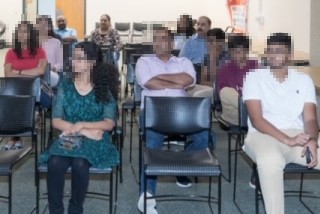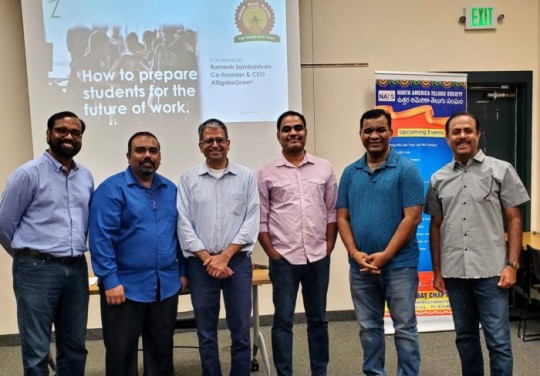Don't wanna be here? Send us removal request.
Text
Empowering children for a grown-up world
Chores in a digital age for the digital native

The tradition of giving children chores to make them responsible is changing and will change faster as more automation seeps into our everyday lives. We hear about activities such as working the newspaper route, and putting up wall papers as quaint household chores of an era bygone.
Let us come up with chores for teens that impart marketable and transferable skills. Here are 3 simple ideas you can try at home, with growing children.
Help out in the kitchen. Eventually, kids learn to cook a healthy home-made meal. Knowing how to put together a quick meal is a priceless skill when they leave home for college, internship or their first job. Someday, they will thank you for giving them this opportunity to learn. Encourage them to try their own recipes or other recipes inspired by watching online videos. Bonus: Learning to use different tools in the kitchen is a useful life-skill, whether their future is in manufacturing, the culinary arts, or, yes, even if surgery is going to be their calling.
Help with comparison shopping, whether online or at a store. It is the first step in understanding what smart purchasing entails. Finely tuned web search skills in ecommerce, at least for now, are transferable skills in accounting, procurement, contract negotiations, data analysis and almost any career where one needs to be resourceful and efficient in navigating the internet and gathering knowledge.
Help as a navigator during drives. This is a great way for tweens and teens to start observing streets signs and markings, learn how to exercise common sense while choosing between alternative routes, how to time their commute to be punctual, finding safe spots to park, knowing how to respect authority on the roads, and understanding directions while gaining a general sense of the map and their own coordinates so that they are never blindly following the GPS when the time comes for them to start driving. Knowing to drive calmly and confidently is a critical life skill, for now.
At AlligatorZone, we are big proponents of lifelong learning, and of empowering children with lifeskills early on so that they navigate their high school years and college years without self-doubt. Even though we keep developing many formal programs to help teachers, parents and guardians foster industry-awareness and self-awareness among students, we believe that the best learning environment in one's early years is at home and with friends, and the most foundational teachers, one's loving elders at home.
If you liked this article, drop us a line to let us know. If you have stories to share about chores that have yielded multiple life-lessons in your own experience, please send them to our editors and they may amplify your tips with credit to you (unless you wish to remain anonymous).
Picture credit: Photo by Annie Spratt on Unsplash
0 notes
Text
How to prepare students for the future of work — a synopsis of our recent town-hall meeting.
Do not delay explorations until college.
October 24, 2019 — Recently, NATS Tampa had organized a town-hall meeting where I had the privilege of presenting our findings to a group of high-school students and their parents, on how students may prepare for career success in industries of the future.

In our journey with AlligatorZone, we have learned that a vast majority of college-bound students start with undeclared majors and start exploring the world only after they start college. Our AlligatorZone events, where students and startups come together in meeting rooms to have conversations are one of the greatest forms of exploration you can find, and lately, we see high-school students taking an active part in our programs.
Here’s an excerpt from The Hechinger Report that’s worth highlighting.
Nine out of 10 incoming freshmen think they’ll graduate with a bachelor’s degree in four years or less, according to an annual national survey conducted by a research institute at UCLA. But the U.S. Department of Education reports that only 41 percent of them do. The average student takes 4.4 years to earn a bachelor’s degree from a research university and 4.8 years from all other kinds of institutions, the advocacy group Complete College America says.
Changing majors is a huge contributor to this. It means many students end up taking courses they don’t need, then scurrying to complete the ones they do. The result is that bachelor’s degree recipients take and pay for 15 credits, on average — an entire semester — more than they need, according to Complete College America. Some give up altogether.
Explorations delayed till college come at a steep cost, both financial and emotional. Such delayed exploration also impacts student-debt.
That is why AlligatorZone has started an awareness campaign for both students, as well as parents, so that families know there’s affordable help.
I appreciate the invitation from NATS Tampa for this town-hall meeting. They do phenomenal work in Tampa Bay.
Given below is a synopsis of the talk, for those students who missed the session.
It’s hard to seek internships when an employer does not know what differentiates you from others seeking internship.
That is why it is important to think of personal branding.
Personal branding can be about something personal, such as a hobby.
The idea is to provide a peek into your mind, by communicating your thoughts, your ideas, your projects, and your view of your world.
This need not be a high-maintenance endeavor. It could be something as simple as a blog.
What is hard is to know what to write in your blog.
The important thing is to learn how to write like a marketer — to influence, inform and impact your audience in a positive manner. After all, we are selling the idea of having an employer give us that internship position, or we are selling the idea of a college official grant us admission to that coveted seat.
That is where the exploration programs of AlligatorZone help. They help you add substance to your style in whatever you create.
Whatever you create is incomplete until you document it.
The next thing to do is to explore where your values will align with how different industries operate, to figure out where you might like to make an impact.
To make an impact, find out what comes naturally to you and what kind of skills you need to develop.
Last, but not the least, learn about a variety of things with an open mind.
Ideas from completely unrelated areas may help you solve a problem in a unique manner.
Some of the parents approached me for one-on-one coaching, so if you want that, please feel free to reach out to me.

Picture credit: NATS Tampa
Other parents expressed interest in our home-based program.
Finding the right information and making various pieces of the puzzle fit to tell a coherent story, is the hardest part.
That is one of the areas where AlligatorZone helps you.
We believe that one can effectively begin on this exploration in the 8th grade. However, I have seen even 5th graders do really well. Our youngest subscriber right now, is a 9 year old girl, who is doing really well.
College students who are still with undeclared majors, or undecided and switching majors, will also find AlligatorZone incredibly valuable.
In other words, it is never too early and never too late to join AlligatorZone.
We believe in the power of story-telling to create hooks for students to start exploring.
That is why we launched AlligatorZone’s at-home program.
High-school students in the audience mentioned that the school counselors mainly provide advice on colleges.
There aren’t many resources to explore the world of work and industry, they say. Our home-based explorations may be a good place to start by visiting https://AlligatorZone.org/programs.
If you think this talk and the ensuing discussions will help your high-school cohort or your middle-school students, contact us and AlligatorZone will present a special townhall meeting for your school.
0 notes
Text
Blogging and the Bibliophile
For middle-school or high-school students who love to read books, the theme for a blog may be right under their noses.

One of the advantages of being a school student is that you will have to read different kinds of books. There will be other books that you read because you want to. Every time you read a book, you will form an opinion about the book. Sometimes other friends may ask you for your opinion about a book if they know that you have already read it. Those opinions can be the theme of a blog.
In other words, you could set up a book review blog.
Here are a few tips to make your book review blog a rewarding activity.
No spoilers. Do not ever give away the ending of a story, or any plot twists. That would be a disservice to other readers and to the author.
Kindness. Be kind in how you judge a book. It is very tough to be an author, and you want to share only constructive opinions. If a book did not resonate with you, then suggest the kind of readers that may find the book appealing.
Intrigue. Leave some intrigue. Leave some unanswered questions. Make your readers wonder, and want to come back to read your next review.
Remember that if you can write your original thoughts about the books you read, very soon you may even find a following. Some day you may be able to meet and interview the authors of books you read and review on your blog.
youtube
Create your own rating system. If it is clever and catchy, bibliophiles will start looking for your rating on a book, and that is powerful.
Your book reviews can also include a link to the book for readers of your blog to purchase it directly from your favorite book store.
A book review blog will help you develop powerful analytical skills that are very useful in the real world. Do consider creating your own book review blog.
This blog post is a warm-up before introducing school students to the Blog School by AlligatorZone.
0 notes
Text
Blogging to learn in public.
The third in our series on blogging strategies for middle- and high-school students is about how to use blogging to think aloud while learning something new.

Thinking up topics for a blog can sometimes be a challenge. It helps to come up with a general theme for our blog.
A simple strategy is to set the tone of a learner and write the blog as if we are thinking aloud. It helps to pick a topic about which we want to learn more, and start writing about it, one blog post after another.
This approach can accomplish a few valuable things besides providing a steady stream of topics for essays.
Learning in public through blogging helps us rekindle or develop our innate curiosity. The more questions we ask, the better the questions get because we learn how to start narrowing our focus on what we want to learn, and thus our questions become more focused. Somewhere along the way as we are growing up, we stop asking as many questions as we probably used to, when we were toddlers. Using a blog to revive that skill of asking a series of questions out of curiosity is a worthwhile exercise.
Learning in public allows us to stay vulnerable and less subject to criticism. Blogs published on the internet can attract cruel public scrutiny. Stating upfront that we are merely documenting our learning journey in a particular subject changes that perception that we are expert bloggers spewing out advice to the world through the blog. Most people want to help a student out. A blog can be an honest and authentic attempt at learning a new subject.
Learning in public allows us to find allies and mentors in our learning journey and present their thoughts as fresh blog posts. This could take the form of being able to reach out to experts in the field we are seeking to learn and interview them for our blog. We could even invite them as guest bloggers.
In general, learning in public using a blog makes for a powerful strategy to show future employers and college admissions official how we learn and how we think. It is a wonderful mechanism to share whatever little we are learning with others who may know less than us and are not willing to be vulnerable and learn in public. It is said that we learn a skill must better and faster if we try to teach it to others.
Last but not the least, using our blog to learn in public, we believe, is a form of selfless community service, and the joy derived from that very act of blogging and sharing one’s learning journey becomes its own reward.
This blog post is a warm-up before introducing school students to the Blog School by AlligatorZone.
Photo credit: Dylan Gillis on Unsplash
0 notes
Text
Blogger’s block.

When we start writing essays or blogging, it might take a while for us to get warmed up. How does one make blogging a regular habit? Here are a few things to try.
Take one thing or one concept and start trying to understand it really well. If you want to use the Internet for getting a deeper understanding of your chosen topic, then cite your sources. If you have a way to go directly to the source, then try that because it will make your writings unique and refreshing. For example, if you have any elder in the family who has experienced the tsunami in Japan or in Sri Lanka, you can have a deep conversation with them and write about their experience. If you have an opportunity to sit down with a grand parent and learn about how life was when they were kids, that could be a source of a unique perspective on life. Whichever approach you take, keep your essay authentic.
You are writing down a conversation that is in your mind, or with others, in your own way of expression.
Feel free to write your blog posts in multiple installments if you have not arrived at the whole story. Save it in draft mode on your own computer. Write out the whole thing and post each installment separately, one after the other. When you do that, try to end each piece of the overall story with some sort of intrigue or a cliff-hanger. This can make it engaging for the reader.
Others may not have the same kind of exposure to the things you write about. That may be the world of video games or the kinds of experiences about which you are writing. Take the time to explain concepts, scenarios, and things in simple and non-technical language, without assuming your readers know it so that they understand what you are trying to convey exactly as intended.
Try to be kind and helpful to your readers when you share your knowledge by writing on your blog. Give them some context for the topic you are addressing and try to paint a picture with your words to help your readers get in the right frame of mind for being able to enjoy your article.
Do not be afraid to use your blog post to pose a question or leave questions unanswered. The readers may not answer it. However, just posting the question will help you think about it later, and you may find your way to the answer as you start thinking about it.
We will share more ideas for making blogging a joyful pursuit for the middle school and high school student. Remember, blogging is a written conversation you are starting, first with yourself, and later as you build an audience, with people who want to hear your perspective.
This blog post is a warm-up before introducing school students to the Blog School by AlligatorZone.
Picture credit: Ryan Snaadt on Unsplash
0 notes
Text
Blogging is ‘Body’ Building
Spencer Burleigh, cofounder of Rent the Backyard once casually mentioned that he wished he had started maintaining a blog when he was in school. Later, we at AlligatorZone invited him for a special podcast to hear more of his views on blogging. Along with reading this essay, please also consider listening to that podcast (linked here).
Now, back to the topic of this article. By ‘body building’, what we mean is building a body of work.

Remember the chicken or egg situation that students leaving college sometimes face, where they do not get hired because they lack work experience, and do not have work experience because they do not get hired? Blogging addresses this challenge by allowing a student to display a body of work easily to the outside world.
A blog empowers students to independently publish their best work and make it easy for anyone to get a quick glimpse into how they think.
What can be a body of work for a middle-school or a high school student, you may wonder. School projects in a favorite subject can be a body of work. Deep thoughts about a passion project or a hobby demonstrate a body of work.
If you can write about your schoolwork or hobby and bring your own perspective, it will be unique and refreshing. What you write in your blog can be interesting to any reader who wants to learn about the subject you love and to learn about you.
Your blog is one simple way for your self-promotion without self-promoting.
However, the benefit does not end there. Regular blogging by itself results in a steady flow of creative expression. That makes a blog its own body of work. Something that every employer in industry, every college admission official and every professional looks for is whether a candidate has clarity in expressing ideas and can write in an engaging manner. A carefully managed blogging strategy, where students write consistently and find their voice will pay huge dividends for a long time.
This article is a ramp up to our launch of our new module ‘Blog School’. Learn about our other programs at AlligatorZone.org
1 note
·
View note